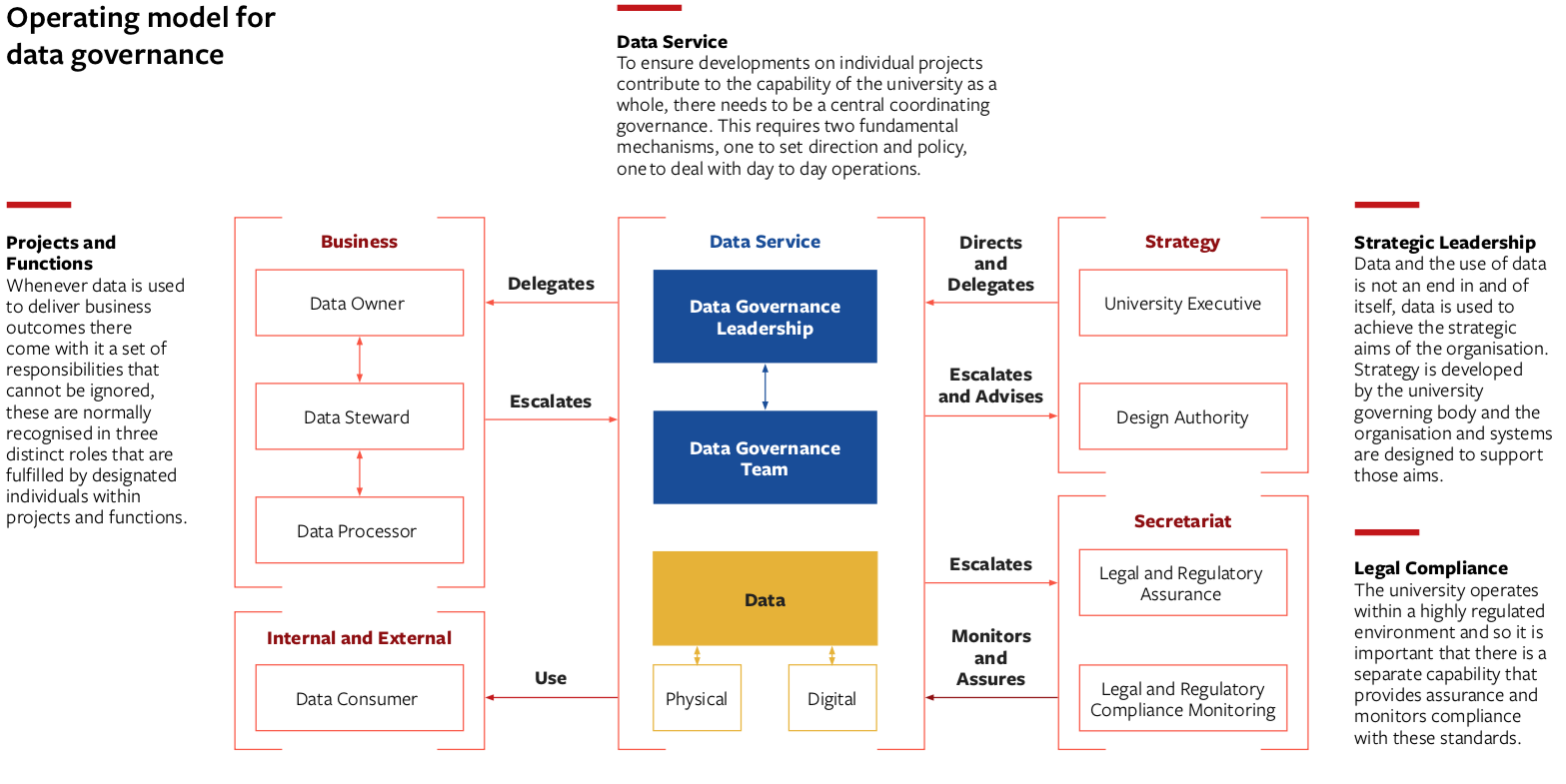Govern

The Data Strategy will establish a core Data Service team to provide technical, legal and regulatory leadership and support.

It will provide access to data for education, research and wider purposes, and collaborate with partners across the sector to maximise impact.
Delivering the Data Strategy will require skills in data architecture, modelling and analysis, as well as data governance and quality specialists. The Service will develop and evolve through regular consultation with stakeholders. Senior data decision-makers will act as ‘data champions’, making sure that data is treated as a valuable asset with the potential to enrich the whole organisation. A Data Design Authority (DDA) will be convened to provide the governance and structure needed to align to strategy, design principles and standards.

Projects and Functions
Whenever data is used to deliver business outcomes there come with it a set of responsibilities that cannot be ignored, these are normally recognised in three distinct roles that are fulfilled by designated individuals within projects and functions.
Data Service
To ensure developments on individual projects contribute to the capability of the university as a whole, there needs to be a central coordinating governance. This requires two fundamental mechanisms, one to set direction and policy, one to deal with day to day operations.
Strategic Leadership
Data and the use of data is not an end in and of itself, data is used to achieve the strategic aims of the organisation. Strategy is developed by the university governing body and the organisation and systems are designed to support those aims.
Legal Compliance
The university operates within a highly regulated environment and so it is important that there is a separate capability that provides assurance and monitors compliance with these standards.
Risks
- Without data governance to manage and control quality in the long term, any improvements will immediately decay once remediation ceases.
- Without mature data delivery capabilities the risk of getting data integration wrong or using incorrect data in decision making is high.
- Without mature data delivery capabilities, accumulation of technical debt is high.
Risks affecting Leeds’ delivery of core activities include:
- Poor quality data can affect statutory and regulatory returns, including Office for Students conditions of registration and the withdrawal of university status.
- Data breaches which include personal data can incur significant financial and reputational penalties (Information Commissioner’s Office; DPA and GDPR with maximum financial penalty of 4% of annual worldwide turnover or £20m).
- Reputational impact: reporting inaccurate financial or performance indicators could lead to removal of accreditation.
Mitigation
- The Data Strategy will enable the University to address the highlighted risks and create capacity for maximising the use of one of its most valuable assets – data
